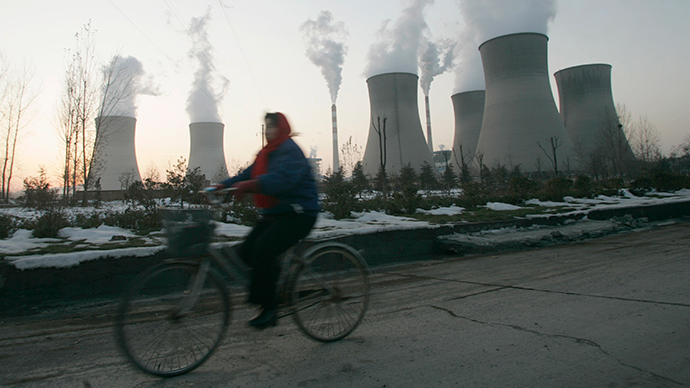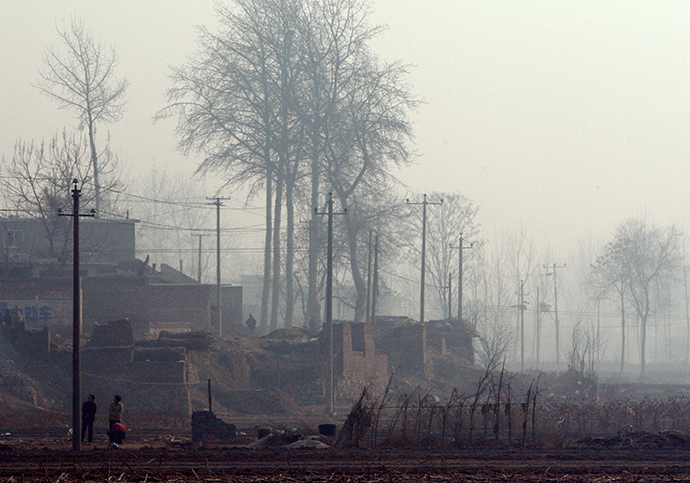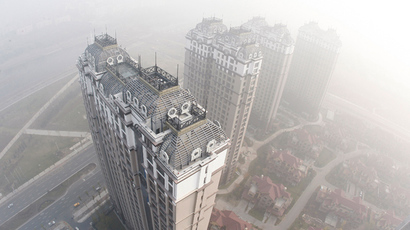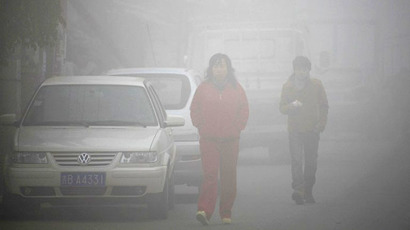Chinese man sues hometown over air pollution

A resident in a polluted city in northern China has become the first person in the country to launch a case against the local government over high levels of pollution. He is also seeking compensation for those affected by the smog.
The local environmental authorities should "perform their duties to control air pollution according to the law," believes Li Guixin, a resident in Shijiazhuang, the capital of north China's Hebei province, reported local Yanzhao Metropolis Daily newspaper.
He wrote the complaint to a district court, demanding the Shijiazhuang Municipal Environmental Protection Bureau “to ease the pollution, to pay the plaintiff 10,000 yuan (US$1,600) for economic losses, and to be responsible for the cost of the trial.”
Li Guixin is also demanding compensation for Shijiazhuang residents who suffered from enormous pollution that was rolling into his native city along with many other Chinese cities this winter.
"The reason that I'm proposing compensation is to let every citizen see that amid this haze, we're the real victims," Li said, as quoted by the newspaper.
According to Li, he began suffering from pollution since December, 2013 (when the smog was extremely chocking across Northern China). He started coughing and had to buy face masks as protection an air purifier and a treadmill for indoor exercises.
"Besides the threat to our health, we've also suffered economic losses,” the plaintiff told Yanzhao Metropolis Daily, ”These losses should be borne by the government and the environmental departments.”
Li decided to take into action after the Shijiazhuang government launched a special traffic restriction plan on February 22, 2014. The project forbade “some car plate numbers from hitting the road for one day.”
"The cars we bought are up to standard. If the environmental department thinks something is wrong with the gas, then they should go to the companies that produce the gas. Not us," added Li.

The provincial and city courts already rejected Li’s case. However, his case is still being examined by the district court, which will give the response in a week.
Hebei, a major industrial region which surrounds Beijing, is considered a “major source of noxious smog that hung over Beijing a year ago” by the China Academy of Sciences. Shijiazhuang, its capital and largest city recorded "beyond index" measurements of particulate matter in early 2013.
Hebei province is not the only one blanketed by toxic smog. The whole Northern China has recently been suffering from the most hazardous air pollution in months, which worsens in winter, when stagnant weather patterns combine with an increase in coal-burning.
On Friday, Beijing which has been shrouded in stinking smog for more than a week, raised its four-tiered smog alert system to the second-highest 'orange' level for the first time as heavy smog was forecast to roll into the city for the next three days. Officials have urged people to stay indoors and use public transport.
"There's now clear evidence that, in the long term, high levels of air pollution can actually also cause ... lung cancer," Bernhard Schwartlander, the World Health Organization's (WHO) representative in China, told Reuters.
The Chinese government is trying to curb its pollution problems. In recent years the authorities have put into action numerous policies to try to clean up the environment, including investing in new non-polluting projects and giving courts the power to enforce stiff penalties. In December, the Chinese government even used the practice of ‘cloud seeding’ - artificial rain - to disperse the county’s notorious smog. This technique will be officially used by local authorities from 2015.
However, the enforcement is patchy; particularly at the local level, where authorities rely on taxes from polluting industries.















